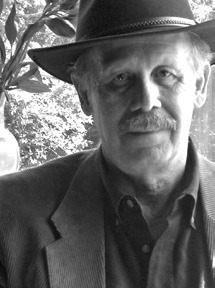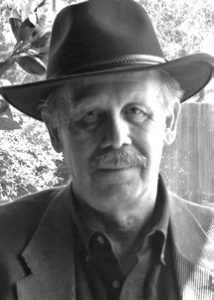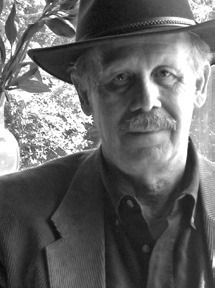
THIS WEEK IN TEXAS HISTORY
On the Fourth of July 112 years ago this week, 40 delegates to the Democratic national convention boarded a train in Baltimore for the long ride back to Texas proud of the fact they had earned a place in history.
Although he remained a revered icon, William Jennings Bryan realized his three defeats, twice to William McKinley and once to William Howard Taft, ruled out another run for the White House. The Democratic Party needed new blood at the top of the ticket, and there was no shortage of willing donors.
Thomas B. Love had known since Nov. 8, 1910 who he would support. That was the night the ex-speaker of the Texas House sent a telegram to an Ivy League president congratulating him on a stunning victory in his first bid for public office. “I am for you for President of the U.S. in 1912,” the Dallas attorney told the next governor of New Jersey.
Two weeks later, a second Texan went to the trouble to size up Woodrow Wilson in person. For the past two decades, Col. E.M. House had been the wizard behind the curtain grooming four different men for chief executive of the Lone Star State. Now he wanted to try his hand at presidential chemistry, and the former professor, despite his lack of political experience, was the perfect subject for the grand experiment.
By Labor Day 1911, the Texas branch of the Wilson admiration society was going great guns. Two hundred Democrats, the heart and soul of the party’s progressive wing, had joined forces in a statewide organization dedicated to sending a pro-Wilson delegation to the national convention the next summer.
But that was easier said than done in a state where progressive Democrats regularly lost faction fights with their bigger and stronger conservative foes. Led by Sen. Joseph Weldon Bailey, in whose eyes Wilson was a “revolutionary” out to “make a Greek democracy of America,” 12 of the 16 Texans currently in congress had expressed their opposition to the East Coast governor.
To pump up his grass-roots appeal, Wilson put in a two-day appearance in October 1911. In Dallas a crowd of 7,500 gave him an enthusiastic welcome at the coliseum on the state fairgrounds, and in Fort Worth 2,000 “packed to suffocation” squeezed into a small hall to hear the studious stranger speak.
The whirlwind visit turned the tide with the Texans that mattered most – the voters. The surge in Wilson’s popularity coincided with two crippling handicaps for his conservative critics. First, scandal-ridden Joe Bailey’s long-expected resignation from the U.S. Senate left them without a charismatic captain, and second, right-of-center Democrats could not agree on a presidential hopeful to rally around.
The result was a clean sweep for progressives at the state convention in May 1912. They selected three and a half dozen Wilson loyalists for the Baltimore convention with strict instructions to stand by their man until hell froze over.
One Texan who did not stand by Woodrow Wilson, at least not in public, was the “Veiled Prophet of Austin.” Giving his lab rat “a good chance but nothing more,” E.M. House suddenly remembered a prior commitment — a trans-Atlantic cruise. As he was known to do, the Colonel risked his reputation only on sure things.
The opening ballot seemed to suggest House had made a smart move. Wilson trailed Speaker Champ Clark of Missouri by 116 votes with Ohio Gov. Judson Harmon and Rep. Oscar Underwood of Alabama both within striking distance.
When the notoriously corrupt Tammany Hall machine went over to Clark on the ninth ballot with the bulk of the New York vote, the front-runner had the majority but not the nomination. That took two-thirds of the delegates.
Neutral up until that point, William Jennings Bryan in one of his spellbinding speeches blasted Clark as a Tammany tool and front man for Wall Street. “The Great Commoner” ended with a rousing endorsement of Wilson as the only reformer in the field.
Wilson gradually gained ground but was still stuck in second after the 26th ballot at three o’clock in the morning. The convention adjourned for the rest of the day, a Sunday, with plans to resume the endurance test bright and early Monday.
Typical of the telegrams the Texans received on their day off was this short and to-the-point message from an East Texas Democrat: “We want Wilson. Don’t come home until he is nominated.”
Nevertheless, it was only more of the same on Monday. Wilson began to despair of his chances of catching Clark and even went so far as to draft a concession statement. But on the 30th vote the deadlock was broken, and 16 ballots later the underdog became the presidential nominee of the Democratic Party.
The “Immortal 40,” a nickname the Texans coined themselves, rightly received the lion’s share of the credit from none other than the future First Lady. At a post-convention celebration, Ellen Wilson, who would not live to see her husband elected to a second term, said to Tom Love, “Oh, Mr. Love, but not for Texas we would not be here today!”
“Unforgettable Texans” brings to life the once famous people no one remembers today. Order your copy for $24.00 by mailing a check to Bartee Haile, P.O. Box 130011, Spring, TX 77393.











